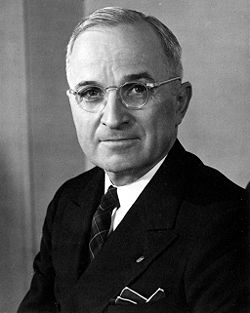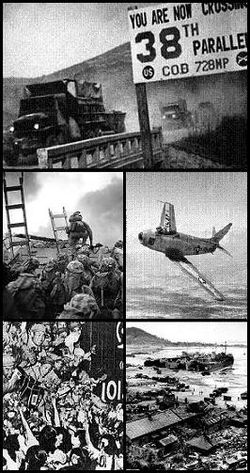| |
Date |
Event(s) |
| 1 | 1898 | |
| 2 | 1933 | |
| 3 | 1939 | |
| 4 | 1940 | - 1 Apr 1940—1 Apr 1940: BOAC starts operations, replacing Imperial and British Airways Ltd
- 11 May 1940—11 May 1940: National Government formed under Churchill
- 13 May 1940—13 May 1940: Germany invades France
- 27 May 1940—27 May 1940: Start of the evacuation of the British Army at Dunkirk (27 May - 4 Jun)
- 25 Jun 1940—25 Jun 1940: Fall of France to Germany
- 7 Sep 1940—7 Sep 1940: Germany launches bombing blitz on Britain, the first of 57 consecutive nights of
bombing
- 15 Sep 1940—15 Sep 1940: Battle of Britain: massive waves of German air attacks decisively repulsed by the
RAF - Hitler postpones invasion of Britain
- 14 Nov 1940—14 Nov 1940: Coventry heavily bombed and the Cathedral almost completely destroyed
|
| 5 | 1941 | - 1941—1941: Britain introduces severe rationing
- 1941—1941: First British jet aircraft flies, based on work of Whittle
- 1941—1941: Bailey invents his portable military bridge
- 1941—1941: First use of antibiotics
- 10 May 1941—10 May 1941: Rudolf Hess flies to Scotland
- 27 May 1941—27 May 1941: 'Bismark' sunk
- 22 Jun 1941—22 Jun 1941: Germany invades Russia (Operation Barbarossa)
- 1 Jul 1941—1 Jul 1941: First Canadian armoured regiments arrive in Britain
- Dec 1941—Dec 1941: Canadian forces given operation role in defending south coast of England
- Dec 1941—Dec 1941: 'Manhattan Project' of nuclear research begins in America
- 7 Dec 1941—7 Dec 1941: Japan attackes US fleet at Pearl Harbour
- 8 Dec 1941—8 Dec 1941: USA enters WWII
- 24 Dec 1941—24 Dec 1941: Hong Kong falls to the Japanese
|
| 6 | 1942 | - 1942—1942: Invention of world's first programmable computer by Alan Turing in co-operation with
Max Neumann - used to crack German codes
- 1942—1942: Gilbert Murray founds Oxfam
- 30 May 1942—30 May 1942: Over 1,000 allied bombers raid Cologne
- 4 Jun 1942—4 Jun 1942: Battle of Midway
- 19 Aug 1942—19 Aug 1942: Abortive raid on Dieppe, largely by Canadian troops
- 6 Sep 1942—6 Sep 1942: Germans defeated at Stalingrad
- 3 Oct 1942—3 Oct 1942: First successful launch of V2 rocket in Germany - first man-made object to reach
space
- 23 Oct 1942—23 Oct 1942: Battle of El Alamein - Montgomery defeats Rommel
- 2 Dec 1942—2 Dec 1942: 'Manhattan Project' - a team led by Enrico Fermi initiates the first self-sustaining
nuclear chain reaction
|
| 7 | 1943 | - 1943—1943: Round-the-clock bombing of Germany begins
- 16 May 1943—16 May 1943: 'Dam Buster' raids on Ruhr dams by RAF
- 24 Jul 1943—24 Jul 1943: Allies invade Italy - Benito Mussolini resigns as Italian Dictator, 24 July
|
| 8 | 1944 | - 6 Apr 1944—6 Apr 1944: PAYE income tax begins
- 4 Jun 1944—4 Jun 1944: Allies enter Rome
- 6 Jun 1944—6 Jun 1944: D-Day invasion of Normandy
- 12 Jun 1944—12 Jun 1944: First V1 flying bombs hit London
- 8 Sep 1944—8 Sep 1944: First V2 rocket bombs hit London
- 11 Sep 1944—11 Sep 1944: Allies enter Germany
- 16 Dec 1944—16 Dec 1944: Battle of the Bulge: German counter-offensive
|
| 9 | 1945 | - 4 Feb 1945—4 Feb 1945: Yalta Conference between Churchill, Roosevelt and Stalin
- 29 Mar 1945—29 Mar 1945: Last V1 flying bomb attack
- 12 Apr 1945—20 Jan 1953:
 Harry S. Truman U.S. Presidency Harry S. Truman U.S. Presidency
- 25 Apr 1945—25 Apr 1945: Berlin surrounded by Russian troops
- 30 Apr 1945—30 Apr 1945: Hitler commits suicide
- 8 May 1945—8 May 1945: VE Day (Victory in Europe)
- 9 May 1945—9 May 1945: Channel Islands liberated
- 26 Jun 1945—26 Jun 1945: UN Charter signed in San Francisco
- 16 Jul 1945—16 Jul 1945: First ever atomic bomb exploded in a test in New Mexico (although there were
other forms of atomic device before that, such as the Pile at Stagg Field, first critical on
2nd Dec 1942)
- 26 Jul 1945—26 Jul 1945: Labour win UK General Election - Churchill out of office
- 29 Jul 1945—29 Jul 1945: BBC Light Programme starts
- 6 Aug 1945—6 Aug 1945: Atomic bomb dropped on Hiroshima
- 9 Aug 1945—9 Aug 1945: Atomic bomb dropped on Nagasaki
- 15 Aug 1945—15 Aug 1945: VJ Day (Victory in Japan)
- 2 Sep 1945—2 Sep 1945: Japanese surrender signed aboard USS Missouri
- 24 Oct 1945—24 Oct 1945: United Nations Organisation comes into existence
- 4 Nov 1945—4 Nov 1945: UNESCO founded
|
| 10 | 1946 | - 1946—1946: Transition to National Health Service starts in Britain (came into being 5th July 1948)
- 1946—1946: Alistair Cooke starts his regular 'Letter from America' on BBC radio - until 2004
- 1 Jan 1946—1 Jan 1946: First civillian flight from Heathrow Airport
- 1 Mar 1946—1 Mar 1946: Bank of England nationalised
|
| 11 | 1947 | - 1947—1947: Most severe winter in Britain for 53 years at start of the year - heavy snow and much
flooding later
- 1947—1947: First British nuclear reactor developed
- 1 Jan 1947—1 Jan 1947: Coal Mines nationalised
- 23 Feb 1947—23 Feb 1947: International Organization for Standardization (ISO) founded
- 1 Mar 1947—1 Mar 1947: International Monetary Fund begins financial operations
- 1 Apr 1947—1 Apr 1947: School leaving age raised to 15 in Britain
- 26 Oct 1947—26 Oct 1947: British military occupation ends in Iraq
- 20 Nov 1947—20 Nov 1947: Marriage of Princess Elizabeth (later Elizabeth II) and Philip Mountbatten in
Westminster Abbey
|
| 12 | 1948 | - 1948—1948: British Citizenship Act : all Commonwealth citizens qualify for British passports
- 1948—1948: Transistor radio invented
- 1948—1948: Long-playing record (LP) invented by Goldmark
- 1 Jan 1948—1 Jan 1948: British Railways nationalised
- 5 Jul 1948—5 Jul 1948: National Health Service (NHS) begins in Britain
- 29 Jul 1948—29 Jul 1948: London Olympics begin
|
| 13 | 1949 | - 1949—1949: Maiden flight of the Bristol Brabazon (broken up in 1953 for scrap)
- 1949—1949: De Haviland produces the Comet - first jet airliner
- 15 Mar 1949—15 Mar 1949: Clothes rationing ends in Britain
- 4 Apr 1949—4 Apr 1949: Twelve nations sign The North Atlantic Treaty creating NATO
|
| 14 | 1950 | - 19 May 1950—19 May 1950: Points rationing ends in Britain
- 26 May 1950—26 May 1950: Petrol rationing ends in Britain
- 25 Jun 1950—27 Jul 1953:
 Korean War Korean War
- 11 Jul 1950—11 Jul 1950: 'Andy Pandy' first seen on BBC TV
- 9 Sep 1950—9 Sep 1950: Soap rationing ends in Britain
- 28 Dec 1950—28 Dec 1950: The Peak District becomes the Britain's first National Park
|



 Submit Photo / Document
Submit Photo / Document
